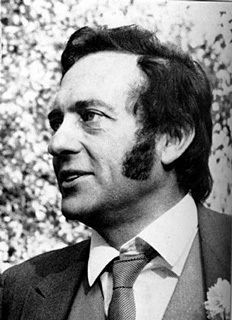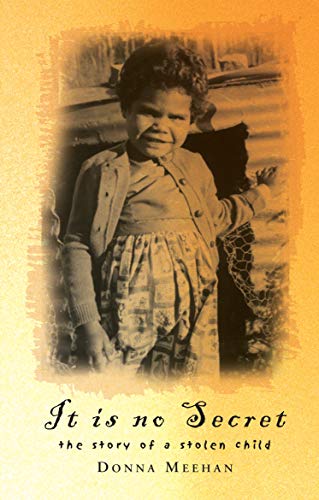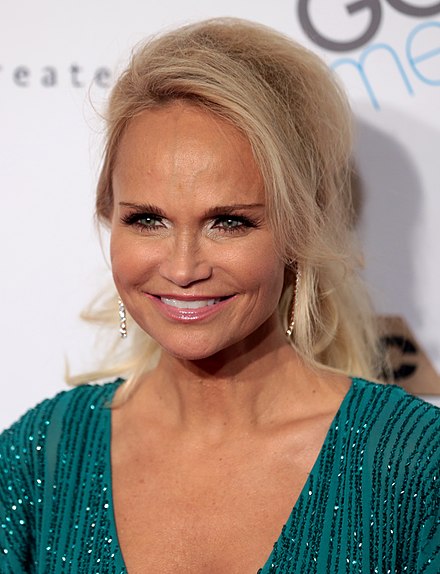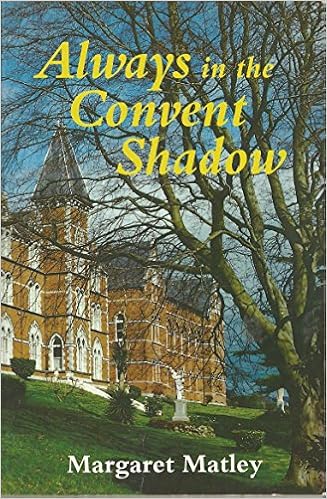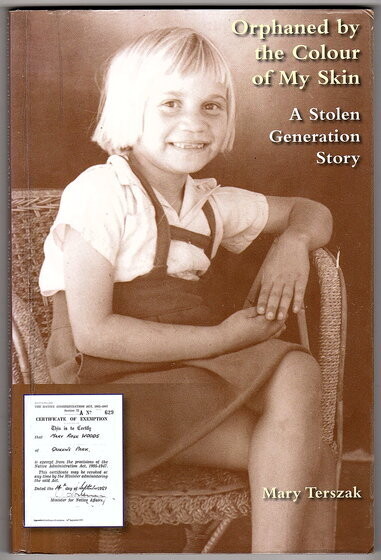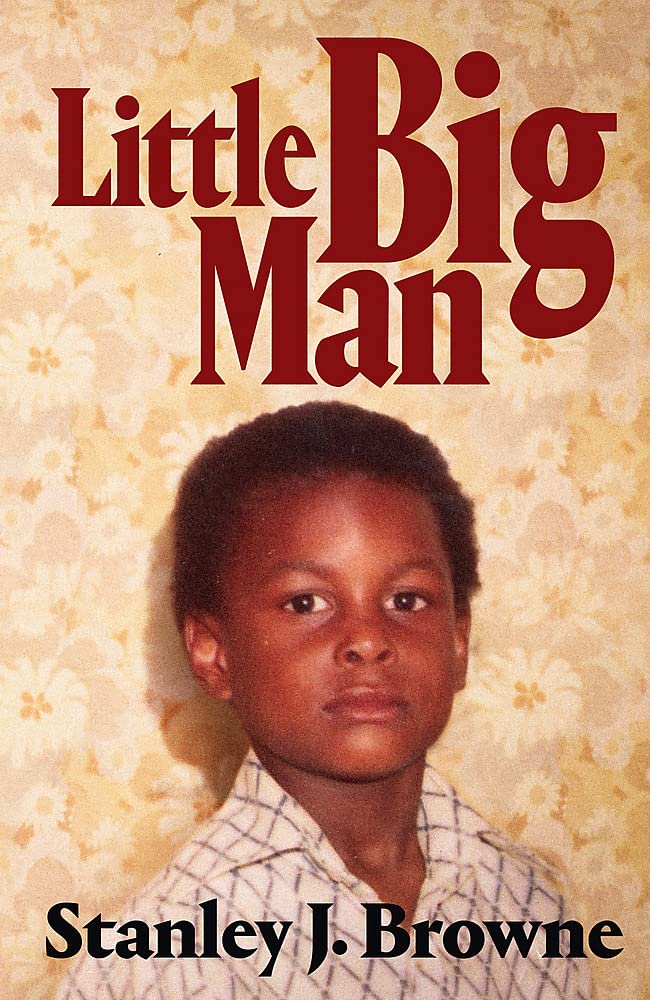Search Results
5677 results found with an empty search
- Lemon Sherbet and Dolly Blue: The Story of An Accidental Family
Autobiography/Memoir Lemon Sherbet and Dolly Blue: The Story of An Accidental Family Lynn Knight 2011 It is said that you can't choose your relatives but some of Lynn Knight's family did. Three generations were adopted, and in three distinct ways. 150 Station Road, Wheeldon Mill - a short stride across the Chesterfield Canal in the heart of Derbyshire - was home to the Nash family and their corner shop, which served a small mining community with everything from Brasso and Dolly Blue, to cheap dress rings and bright sugary sweets. But just as this was no ordinary home, theirs was no ordinary family. Lynn Knight tells the remarkable story of the three adoptions within it: of her great-grandfather, a fairground boy, given away when his parents left for America in 1865; of her great-aunt, rescued from an Industrial School in 1909, and of her mother, adopted as a baby in 1930, and brought to Chesterfield from London. External Website
- The Secret Life of Dorothy Soames: A Foundling's Story
Autobiography/Memoir The Secret Life of Dorothy Soames: A Foundling's Story Justine Cowan 2021 Growing up in a wealthy enclave outside San Francisco, Justine Cowan's life seems idyllic. But her mother's unpredictable temper drives Justine from home the moment she is old enough to escape. It is only after her mother dies that she finds herself pulling at the threads of a story half-told - her mother's upbringing in London's Foundling Hospital. Haunted by this secret history, Justine travels across the sea and deep into the past to discover the girl her mother once was. External Website
- The Orphan in Fiction and Comics since the 19th Century
Academic Books & Book Chapters The Orphan in Fiction and Comics since the 19th Century Gymnich, Marion; Puschmann-Nalenz, Barbara; Sedlmayr, Gerold. 2018 The orphan has turned out to be an extraordinarily versatile literary figure. By juxtaposing diverse fictional representations of orphans, this volume sheds light on the development of cultural concepts such as childhood, family, the status of parental legacy, individualism, identity and charity. The first chapter argues that the figure of the orphan was suitable for negotiating a remarkable range of cultural anxieties and discourses in novels from the Victorian period. This is followed by a discussion of both the (rare) examples of novels from the first half of the 20th century in which main characters are orphaned at a young age and Anglophone narratives written from the 1980s onward, when the figure of the orphan proliferated once more. The trope of the picaro, the theme of absence and the problem of parental substitutes are among the issues addressed in contemporary orphan narratives. The book also looks at the orphan motif in three popular fantasy series, namely Rowling’s Harry Potter septology, Pullman’s His Dark Materials trilogy and Martin’s A Song of Ice and Fire series. It then traces the development of the orphan motif from the end of the 19th century to the present in a range of different types of comics, including funnies and gag-a-day strips, superhero comics, underground comix, and autobiographical comics. External Website
- Harry H. Corbett
Actors Harry H. Corbett Harry H. Corbett, OBE (28 February 1925 – 21 March 1982) was an English actor and comedian, who co-starred in the long-running BBC television sitcom Steptoe and Son alongside Wilfrid Brambell, which was broadcast from 1962–65 and 1970–74. Harry Corbett was born in Rangoon, Burma where his father was serving in the British Army. Harry was just 18 months old when his mother died and he was sent back to Britain to live with relatives. Corbett served during the World War II with the Royal Marines. He then began acting with Joan Littlewood’s Theatre Workshop in London. External Website
- Contesting Childhood: Autobiography, Trauma, and Memory
Academic Books & Book Chapters Contesting Childhood: Autobiography, Trauma, and Memory Kate Douglas 2010 The late 1990s and early 2000s witnessed a surge in the publication and popularity of autobiographical writings about childhood. Linking literary and cultural studies, "Contesting Childhood" draws on a varied selection of works from a diverse range of authors - from first-time to experienced writers. Kate Douglas explores Australian accounts of the Stolen Generation, contemporary American and British narratives of abuse, the best-selling memoirs of Andrea Ashworth, Augusten Burroughs, Robert Drewe, Mary Karr, Frank McCourt, Dave Pelzer, and Lorna Sage, among many others. Drawing on trauma and memory studies and theories of authorship and readership, "Contesting Childhood" offers commentary on the triumphs, trials, and tribulations that have shaped this genre. Douglas examines the content of the narratives and the limits of their representations, as well as some of the ways in which autobiographies of youth have become politically important and influential. This study enables readers to discover how stories configure childhood within cultural memory and the public sphere. External Website
- It Is No Secret
Autobiography/Memoir It Is No Secret Donna Meehan 2000 At the age of five, Donna was taken away from her family and sent to a foster family in Newcastle, New South Wales. In this book, Donna reflects back on her childhood memories of becoming an only child in a white family. External Website
- Kristin Chenoweth
Actors Kristin Chenoweth Kristin Dawn Chenoweth (born 1968) is an American actress and singer, with credits in musical theatre, film and television. Chenoweth was adopted when she was five days old by Junie Smith Chenoweth and Jerry Morris Chenoweth, both chemical engineers from Broken Arrow, Oklahoma, a suburb of Tulsa, and named Kristi Dawn Chenoweth. She has stated that she is of one quarter Cherokee ancestry and that she eventually met her biological mother. In 1999, she won a Tony Award for her performance as Sally Brown in You're a Good Man, Charlie Brown on Broadway. Chenoweth also penned a 2009 memoir, A Little Bit Wicked. External Website
- Cary Grant
Actors Cary Grant Cary Grant (1904-1986) was born Archibald Alexander Leach in Bristol, UK. An English/American actor and classic, sophisticated, gentleman. His father, Elias James Leach a Tailor's Presser and his mother, Elsie Maria Leach a seamtress suffered with clinical depression. His older brother died just before his first birthday (before Cary was born) and his mother never recovered from the loss. His father had Elsie committed when Cary was 9, to an institution and told Cary that she was dead. He would be 31 before he learned she was still alive. Cary lived with his grandmother when his father remarried. He won a scholarship to a grammar school remembered for mischief and never doing his homework. In the evenings he would spend time backstage in Bristol Theatres. Age 14, he was expelled from school joined the Bob Pender Troupe of comedians and acrobats. The Local Authority wanted to know why he didn't live with his father in Southampton and consequently an agreement was made that he would train with Pender which involved touring including the U.S. At 16, Leach made the United States his home during the company’s American tour of 1920, and for the next several years he honed his performing skills. For the next 12 years he became part of the Vaudeville scene as well as performing in theatre. He got his first break into cinema in 1932 in his debut film, This is the Night. This was the beginning of his suave, charming roles as a playboy. Soon after this he became a leading Holywood actor often playing roguish characters with comedy undertones. Nominated twice for an Academy Award, in 1970 honored with Academy Honorary Award, and the Kennedy Center Honor in 1981. In 1999, the American Film Institute’s list of the 100 greatest film stars of all time named him the second greatest male star of the Golden Age of Hollywood. External Website
- From the Ashes
Autobiography/Memoir From the Ashes Jesse Thistle 2021 Jesse Thistle, once a high school dropout and now an Indigenous scholar, chronicles his life on the streets and how he overcame trauma and addiction to discover the truth about his Métis-Cree background. Abandoned by his parents as a toddler, Jesse Thistle briefly found himself in the foster-care system with his two brothers, cut off from all they had known. Eventually the children landed in the home of their paternal grandparents, whose tough-love attitudes quickly resulted in conflicts. Throughout it all, the ghost of Jesse’s drug-addicted father haunted the halls of the house and the memories of every family member. Struggling with all that had happened, Jesse succumbed to a self-destructive cycle of drug and alcohol addiction and petty crime, spending more than a decade on and off the streets, often homeless. Finally, he realized he would die unless he turned his life around. Through sheer perseverance and education—and newfound love—he found his way back into the circle of his Indigenous culture and family. An eloquent exploration of the impact of prejudice and racism, From the Ashes is, in the end, about how love and support can help us find happiness despite the odds. External Website
- God, the Devil and Me
Autobiography/Memoir God, the Devil and Me Alf Taylor 2021 In 2021, Western Australia Noongar man, Alf Taylor (1945-2023) published his autobiography, God, the Devil and Me, which told of his growing up in the now infamous New Norcia Mission in Western Australia. God, the Devil and Me was shortlisted in 2022 New South Wales Premier’s Literary Awards – Indigenous Writer’s Prize. It is described by publisher Magbala Books as “At once darkly humorous and achingly tragic, God, The Devil and Me tells of the life and desperation of the young children forced into the care of the Spanish Nuns and Brothers who ran the Mission…Written with an acerbic and brutal wit, Alf intersperses dark childhood memories with a Monty Pythonesque retelling of the Bible, in which Peter is an alcoholic and Judas is a good guy.” External Website
- Soar
Autobiography/Memoir Soar Simon Wooley 2022 The Right Honourable, Lord Woolley of Woodford was born in Leicester on 24 December 1961, he was adopted at two years old and was raised by loving white parents Phillis and Dan Fox. He grew up on the St Matthew's estate which he described as, "a working-class council estate but it was a hard-working council estate. You never felt that you were short of anything." Woolley's adoptive parents fostered a number of other children during his childhood. My journey from council estate to the House of Lords. Simon Woolley is a member of the House of Lords, the first Black man to head an Oxbridge college, and a policy changemaker who has the ear of prime ministers and the future King. But this is a Lord who wants to shake up the establishment; an outsider who knows how important it is to bring underrepresented voices to the table. Raised by loving white foster parents on the impoverished St Matthew's Estate in Leicester, young Simon soon learnt about politics while in line at the barber's and about racism as one of the few Black children in the neighbourhood. The desire to make the world better was awakened during a trip to South America, where he saw revolutionary politics first hand, and discovered how activism could change people's lives. Inspired, he co-founded Operation Black Vote in 1996, credited with encouraging thousands of Black men and women to exercise their right to vote over the past 25 years. External Website
- Three Little Words
Autobiography/Memoir Three Little Words Ashley Rhodes-Courter 2009 "Sunshine, you're my baby and I'm your only mother. You must mind the one taking care of you, but she's not your mama." Ashley Rhodes-Courter spent nine years of her life in fourteen different foster homes, living by those words. As her mother spirals out of control, Ashley is left clinging to an unpredictable, dissolving relationship, all the while getting pulled deeper and deeper into the foster care system. Painful memories of being taken away from her home quickly become consumed by real-life horrors, where Ashley is juggled between caseworkers, shuffled from school to school, and forced to endure manipulative, humiliating treatment from a very abusive foster family. In this inspiring, unforgettable memoir, Ashley finds the courage to succeed - and in doing so, discovers the power of her own voice. External Website
- Banana Boy
Autobiography/Memoir Banana Boy Frank Norman 1969 Frank Norman was born in Bristol in 1930 and abandoned by his natural parents. After an unsuccessful adoption he was committed to a succession of children's homes in and around London—the story of which is recounted in his childhood autobiography, Banana Boy (1969). After the homes came a succession of petty crimes for which he was imprisoned, finally leading to a three-year stretc. A Playwright and a novelist; he also spent time in a Dr Barnardo's home, Norman worked as a farm labourer and in a travelling fair as well as serving two short prison sentences (described in his successful autobiography Bang to Rights, 1958 and Stand on Me, 1961). He also worked, with Lionel Bart, on the successful musical Fings Aint Wot They Used T'be (1959). External Website
- Orson Welles
Actors Orson Welles George Orson Welles (May 6, 1915 – October 10, 1985) was an American actor, director, writer and producer who is remembered for his innovative work in radio, theatre and film. He was born in Kenosha, Wisconsin to businessman and inventor, Richard (Dick) Welles, and pianist, Beatrice Ives Welles. When he was six, Orson’s parents separated. Three years later, his mother died of hepatitis. At age 11, Orson was sent to boarding school and after his father died, the principal of the school became 15 year old Orson's guardian. Orson Welles is considered one of the greatest filmmakers of all time. While in his twenties Welles directed a number of high-profile stage productions for the Federal Theatre Project, including an adaptation of Macbeth with an entirely African American cast and the political musical The Cradle Will Rock. In 1937 he and John Houseman founded the Mercury Theatre, an independent repertory theatre company that presented a series of productions on Broadway. In 1938, his radio anthology series The Mercury Theatre on the Air gave Welles the platform to find international fame as the director and narrator of a radio adaptation of H. G. Wells's novel The War of the Worlds, which caused widespread panic because many listeners thought that an invasion by extraterrestrial beings was actually occurring. His first film was Citizen Kane (1941), which is consistently ranked as the greatest film ever made, and which he co-wrote, produced, directed and starred in as Charles Foster Kane. In 2002 Orson Welles was voted the greatest film director of all time in two British Film Institute polls among directors and critics, and in 2018 he was included in the list of the 50 greatest Hollywood actors of all time by The Daily Telegraph. External Website
- Fear of the Collar
Autobiography/Memoir Fear of the Collar Patrick Touher 2008 Sent to an industrial school in Dublin at the age of seven, Patrick Touher was forced into a tough regime of education and training, prayer and punishment, strict discipline, and fearful nights. Artane Industrial School demanded absolute obedience and absolute submission; Patrick's eight-year stint there was an education in cruelty and fear. Run by the Christian Brothers, the school has become synonymous with the widespread abuse of children in Ireland in the 1940s and 1950s. External Website
- Always in the convent shadow
Autobiography/Memoir Always in the convent shadow Margaret Matley 1991 The author recalls her childhood in a convent school, committed to the care of the Good Shepherd nuns after the death of her young mother. External Website
- Unorthodox: The Scandalous Rejection of My Hasidic Roots
Autobiography/Memoir Unorthodox: The Scandalous Rejection of My Hasidic Roots Deborah Feldman 2012 Now a Netflix original series! Unorthodox is the bestselling memoir of a young Jewish woman's growing up in kinship care as a member of an ultra orthodox Jewish group. As a member of the strictly religious Satmar sect of Hasidic Judaism, Deborah Feldman grew up under a code of relentlessly enforced customs governing everything from what she could wear and to whom she could speak to what she was allowed to read. Yet in spite of her repressive upbringing, Deborah grew into an independent-minded young woman whose stolen moments reading about the empowered literary characters of Jane Austen and Louisa May Alcott helped her to imagine an alternative way of life among the skyscrapers of Manhattan. External Website
- Orphaned by the Colour of My Skin: A Stolen Generation Story by Mary Terszak
Autobiography/Memoir Orphaned by the Colour of My Skin: A Stolen Generation Story by Mary Terszak Mary Terszak 2008 Orphaned by the Colour of My Skin (2008) by Mary Terszak weaves together auto-ethnography and archival evidence to tell the story of Terszak's removal from her family at the age of 2 in the context of the broader history of Aboriginal 'protection' in Australia. Terszak uses herself as a case study and includes a comparison of her situation with that of non-Aboriginal children who were also removed from families and institutionalised. External Website
- Steering the Mothership (2014) 'Like a Duck to Water'.
Autobiography/Memoir Steering the Mothership (2014) 'Like a Duck to Water'. Rosie Canning 2014 Rosie Canning wrote a chapter 'Like a Duck to Water', for Steering the Mothership. When her first son was born in 1981, new mothers usually stayed in hospital for about a week. In the bed next to her was another new mother. They chatted and the mother told Canning she was a social worker. Canning told her she’d been brought up in care. There follows reflections on being in care without love and how easy it was for Canning to care for and love her newborn son unlike the Social Worker who had problems and eventually asked to be moved to a different bed. External Website
- Little Big Man
Autobiography/Memoir Little Big Man Stanley J. Browne 2022 Stanley J. Browne is an actor, and he has been an actor all his life. Born into a Jamaican family in a London suburb, he began rehearsing for the role of survivor from an early age. From birth he knew nothing but a home filled with love and the vibrancy of a Caribbean culture, but this changes when his mother is diagnosed with schizophrenia. In this honest and gripping memoir, Stanley reflects on a childhood and adolescence torn apart by mental disorder. Because of it, he has to adopt the mantle of ‘man of the house’. Forced to scavenge for food, and miss school to care for his three siblings, his life is further fragmented as they yo-yo in and out of the care system. An intelligent and sensitive child, Stanley begins a descent into crime, heroin addiction and gang life. It is only when he is sent to a young offender’s institution that he slowly begins to turn his life around. Set against a backdrop of 1970s poverty and racism, Little Big Man is a powerful story of generational trauma, and one man’s determination to heal the wounds of the past. Most of all, it is a book about belonging, and the search to find an authentic voice through the redemptive power of creativity and recovery. External Website




